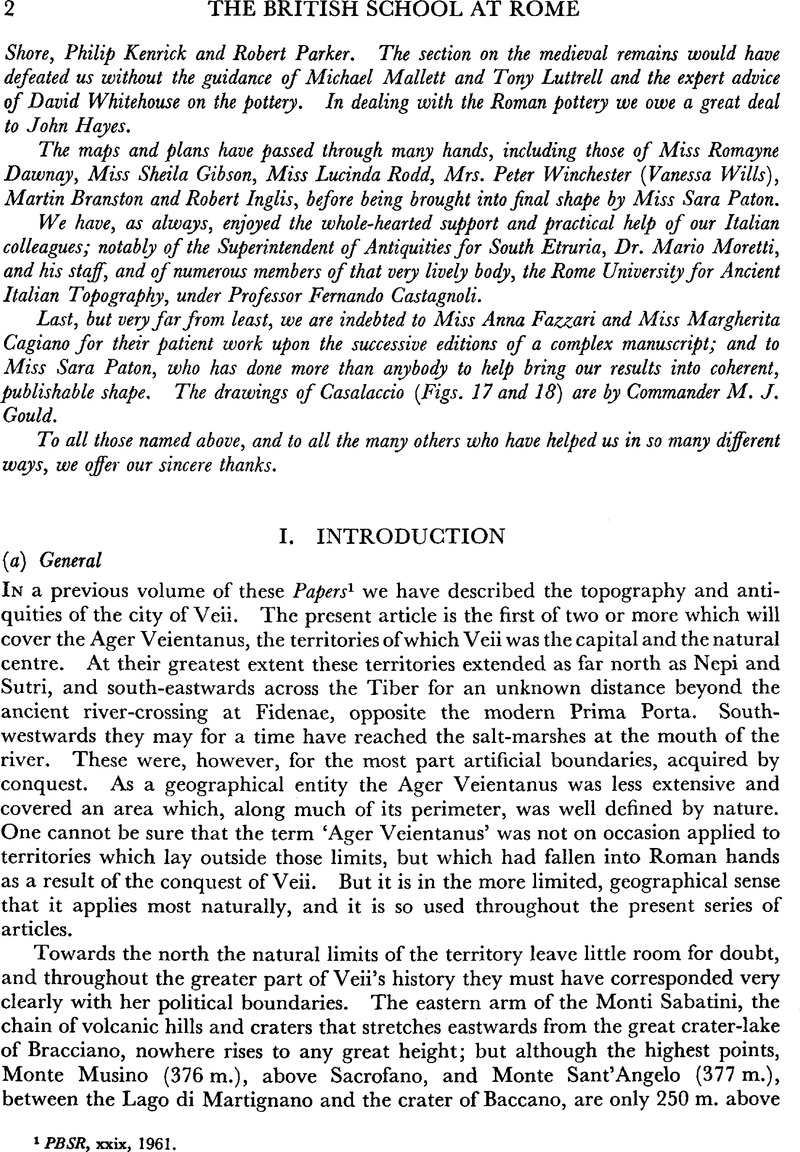No CrossRef data available.
Published online by Cambridge University Press: 09 August 2013

1 PBSR, xxix, 1961Google Scholar.
2 Geographical Journal, cxxviii, 1962, pp. 389–90Google Scholar.
3 Strictly speaking, the geological name of this rock is ‘tufo’ rather than ‘tufa.’ But we have preferred to give it the name by which it has been familiar to generations of archaeologists in central Italy and in the Roman Campagna.
4 Judson, Sheldon and Kahane, Anne in PBSR, xxxi, 1963, pp. 74–99Google Scholar.
5 Ward-Perkins, J. B., Landscape and History in Central Italy (Second Myres Memorial Lecture, 1964), pp. 14, 15Google Scholar. Cf. also p. 58, below.
6 Ibid., p. 14, pl. 4.
7 An exception is the lava (selce) which was in great demand for paving; see below, pp. 158–9.
8 See further, pp. 145–6.
9 Harris, W. in PBSR, xxxiii, 1965, p. 114Google Scholar.
10 See now Whitehouse, David, ‘The medieval glazed pottery of Lazio’, PBSR, xxxv, 1967, pp. 40–86Google Scholar.
11 PBSR, xxxii, 1964, pp. 38–88Google Scholar.
12 Ward-Perkins, art. cit., p. 15. Publication now in preparation.